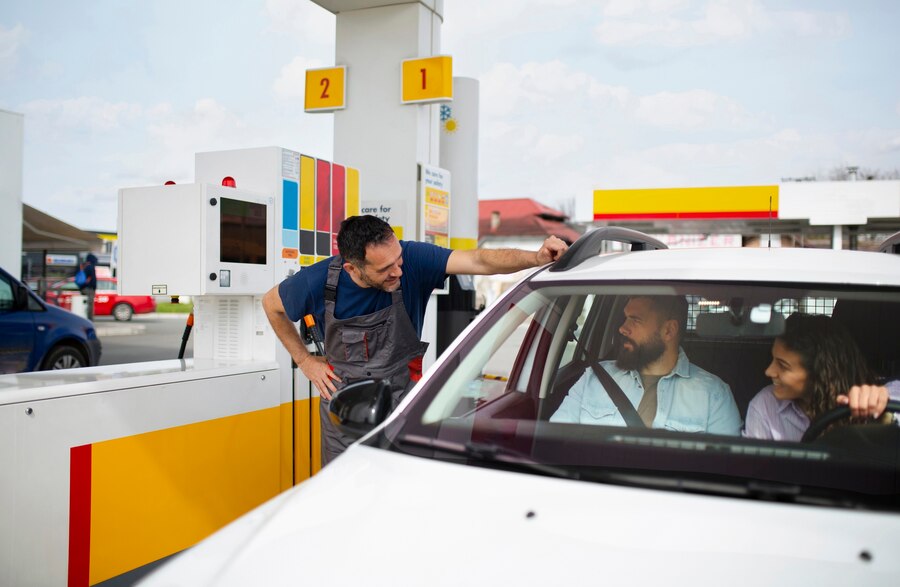
Fuel Transportation License in Dubai: Requirements, Costs and Safety Regulations
In a dynamic business hub like Dubai, the transportation of fuel is an important component supporting diverse sectors—from construction and logistics to aviation and energy. With the city’s fast-paced industrial development and infrastructure growth, there's an ever-growing demand for reliable fuel transport services. If you're considering tapping into this vital sector, acquiring a fuel transportation license in Dubai is your gateway.
However, entering the fuel transportation market isn't as simple as buying a truck and hitting the road. Dubai has put in place strict requirements and safety standards to ensure the secure handling and distribution of flammable materials. Understanding the legal framework, licensing requirements, cost breakdown, and safety obligations is vital to successfully launching and operating a compliant business in this high-responsibility industry.
Understanding the Fuel Transportation License in Dubai
To operate legally in the fuel transport sector in Dubai, you must acquire a fuel transportation license from the appropriate government authorities. This license permits you to carry and distribute fuel across the UAE, typically involving transportation to construction sites, industrial zones, ports, and retail fuel stations.
The licensing authority differs depending on the business jurisdiction:
For mainland companies, the license is issued by the Department of Economy and Tourism (DET) and needs approvals from several other government entities.
For free zone companies, like those in Jebel Ali Free Zone (JAFZA), approvals are handled internally but must still meet federal safety standards and transportation regulations.
Also, approval from Dubai Civil Defence (DCD), the Roads and Transport Authority (RTA), and the Environment, Health and Safety (EHS) Trakhees may be required, depending on your location and business model.
Key Requirements for Obtaining a Fuel Transportation License
Here’s what you need to secure your fuel transportation license in Dubai:
1. Business Plan and Activity SelectionDefine your business activity precisely—whether it's fuel delivery, wholesale distribution, or bulk transport. This determines the classification of your license and the essential permissions.
2. Company RegistrationRegister your business with DET or your chosen free zone. This includes:
Selecting a trade name
Submitting initial approval documents
Finalizing Memorandum of Association (MoA)
Leasing a commercial space or parking yard (with proper zoning)
3. Vehicle RequirementsYou must invest in hazardous material-approved fuel tankers that meet UAE safety standards. Vehicles must be:
GPS-enabled for tracking
Licensed by RTA
Compliant with ADR standards
4. Approvals from Government AuthoritiesDubai Civil Defence (DCD): For fire safety and fuel storage handling
RTA: For vehicle permits and driver licenses
EHS/Trakhees (for free zones): For environmental and safety compliance
Ministry of Energy and Infrastructure: For fuel product approvals
5. Professional StaffDrivers and handling staff must have certifications for hazardous material transport and undergo specialized safety training.
Cost of Fuel Transportation License in Dubai
Starting a fuel transport business in Dubai involves different cost elements. Here’s are the factors involved:
1. Trade License CostMainland
Free Zone
2. Vehicle Registration & ModificationPurchase of fuel tanker
Modification and safety compliance
RTA registration and permit
3. Facility CostsOffice rental (optional for some free zones)
Parking yard for tankers (zoning-compliant)
4. Staff Training and CertificationsDriver certification & safety training
Fire safety & emergency response training
5. Government Fees and InspectionsDCD and EHS inspections
Environmental clearance
Though the initial setup cost may seem significant, the fuel transportation sector can provide strong and consistent returns when managed efficiently.
Safety Regulations and Compliance StandardsTransporting fuel is a high-risk activity, and Dubai enforces stringent safety regulations to protect lives, property, and the environment. Here are some of the important safety regulations businesses must follow:
1. Vehicle SafetyTankers must be equipped with:
Fire suppression systems
Anti-leakage valves
Emergency shut-off systems
Clearly visible hazard labels and warning signs
2. Driver TrainingDrivers must:
Be trained in spill management and emergency response
Follow designated fuel transport routes
Adhere to time-based restrictions in urban areas
3. Storage and HandlingIf your business involves temporary storage of fuel:
Storage facilities with DCD approval
Fire alarms, extinguishing systems, and right ventilation are mandatory
Regular inspection logs must be maintained
4. Environmental RegulationsThe EHS and Trakhees departments enforce:
Fuel spill protocols
Waste disposal methods
Noise and emissions control standards
ConclusionSetting up a fuel transportation business in Dubai involves more than just financial investment—it needs compliance, responsibility, and strategic planning. The robust regulatory framework ensures the safe handling of fuel, which in turn builds trust and long-term sustainability in the industry.
With Dubai’s rising industrial demands, the fuel transportation sector remains a lucrative opportunity. However, navigating the licensing maze, aligning with all the regulatory bodies, and ensuring full safety compliance can be difficult. That’s where a professional business setup consultant can make all the difference—streamlining the process, saving time, and helping you focus on what matters most: running your business.
Are you ready to drive success in Dubai’s booming fuel transport sector?
At Bizvise, we specialize in end-to-end business setup solutions, including licensing, legal support, and compliance assistance for fuel transportation businesses.
Let us help you navigate the complexities and launch your operations smoothly. Contact us today for a consultation—and let’s fuel your business future together!